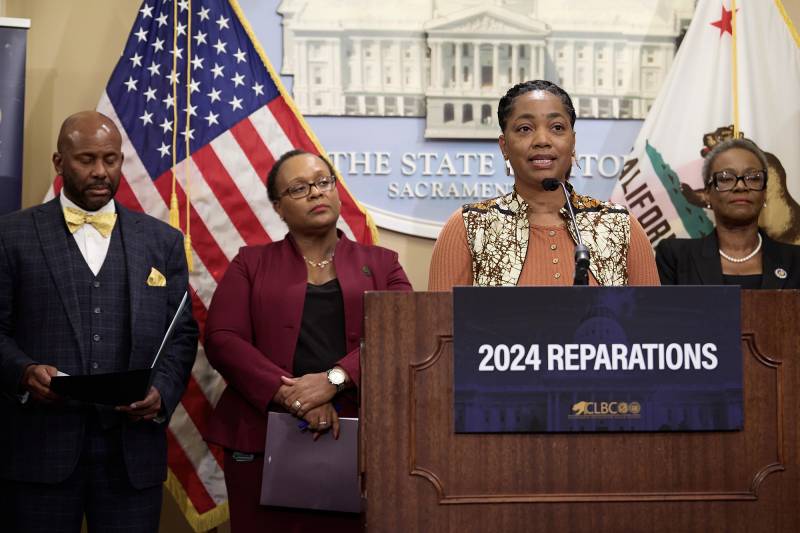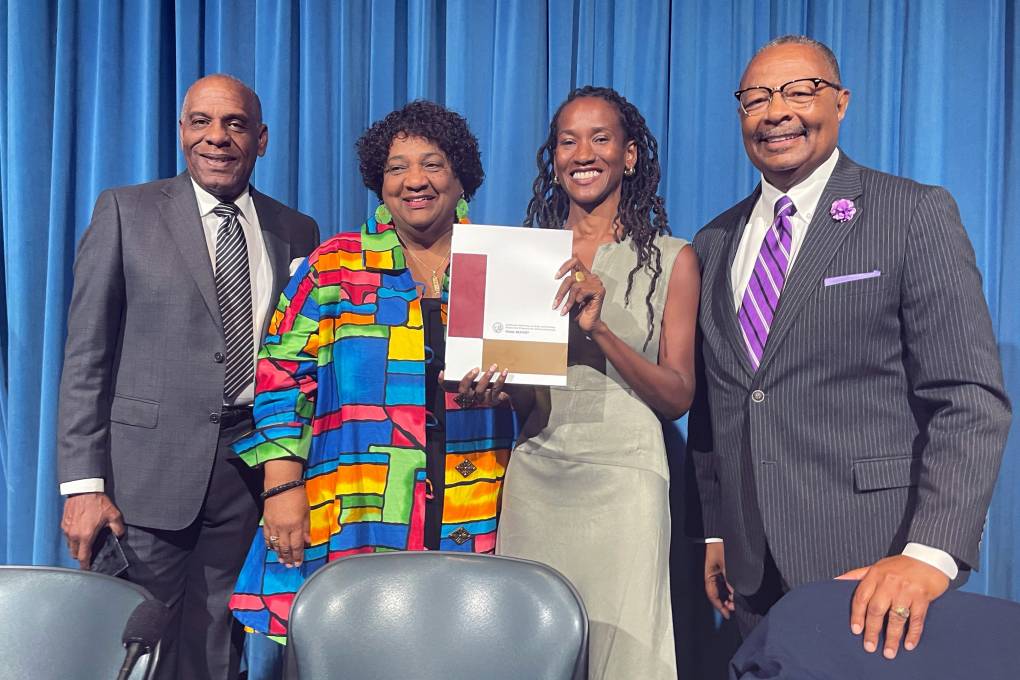“We have changed a harm that has been given to people for generations that stated that beauty only occurs if you look a certain way if your hair is only a certain way,” said Assemblymember Akilah Weber (D-San Diego), the bill’s author, after it passed. “This particular bill repairs that harm.”
AB 1815 was one of the least controversial in the CLBC’s reparations package. Though the bill was amended a few times, it sailed through the Legislature without notable opposition.
“We had significant support with the CROWN Act and we felt like we would be able to have significant enough support for this one to be able to get it through the first, one-year legislative cycle,” Weber said.
Here’s a brief recap of AB 1815. For more information on reparations bills, visit our tracker.
What it wanted to do: Prohibit discrimination based on hair texture or hairstyles like braids, locs and twists. When introduced, the bill focused on preventing discrimination in amateur sports leagues and later broadened.
Why is AB 1815 reparations? According to a 2023 study by Dove, Black women with coiled or textured hair are twice as likely to experience microaggressions at work compared to those with straight hair. Up until 2017, the United States military did not allow men to wear their hair in dreadlocks, and Black women were required to straighten their hair or wear wigs to comply with military regulations.
Why now? AB 1815 expands the 2019 California CROWN Act, which outlawed discrimination based on hairstyle in schools and workplaces. The law is part of a nationwide CROWN Act campaign to protect and celebrate natural Black hairstyles.
The bill was amended on March 21 to remove the focus on amateur sports leagues and instead changed the definition of “race” used in state civil rights laws to include characteristics associated with race, such as hair textures and stylings.
In arguing support of the bill in the Assembly Judiciary Committee on April 2, Weber pointed to cases of hair-based discrimination in New Jersey and North Carolina.
“Our hair is a symbol of who we are,” she said. “These cases around the country are exactly why the California Reparations Task Force made this expansion one of their policy recommendations to the Legislature.”
AB 1815 passed the Assembly Appropriations Committee with unanimous support on April 24. The bill passed the Assembly in a 71–0 vote on May 2. It unanimously passed the Senate Judicial Committee with minor amendments on June 4.


